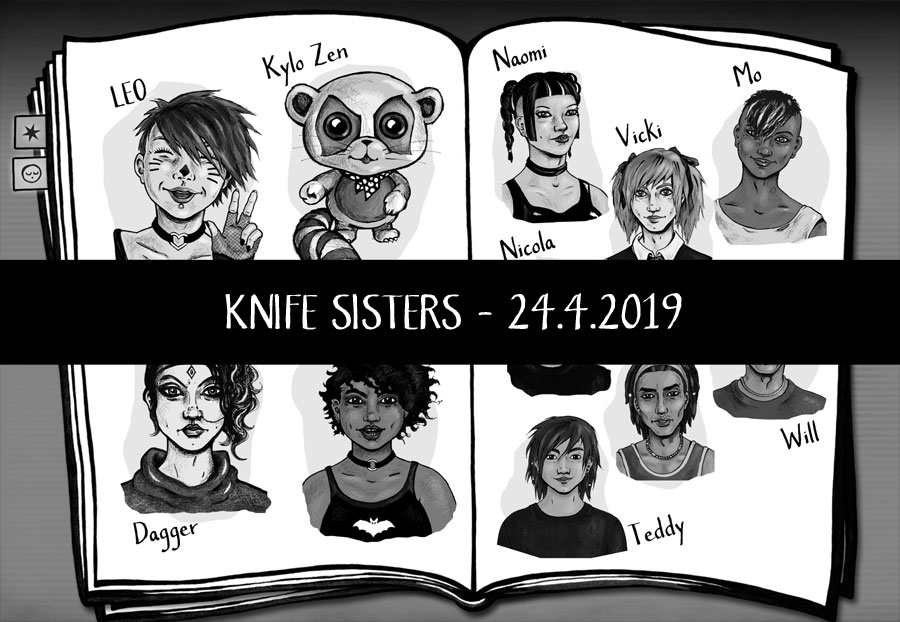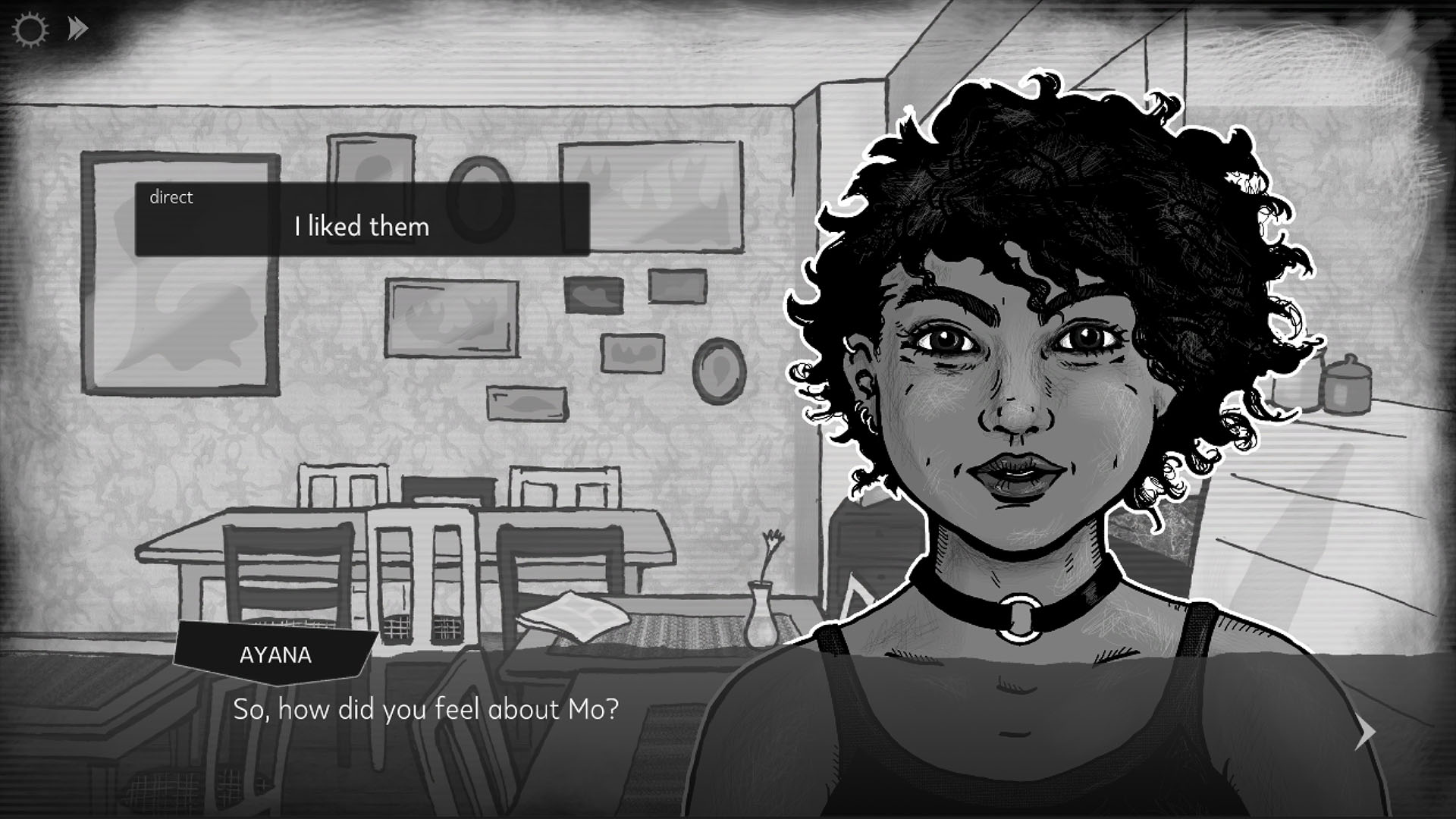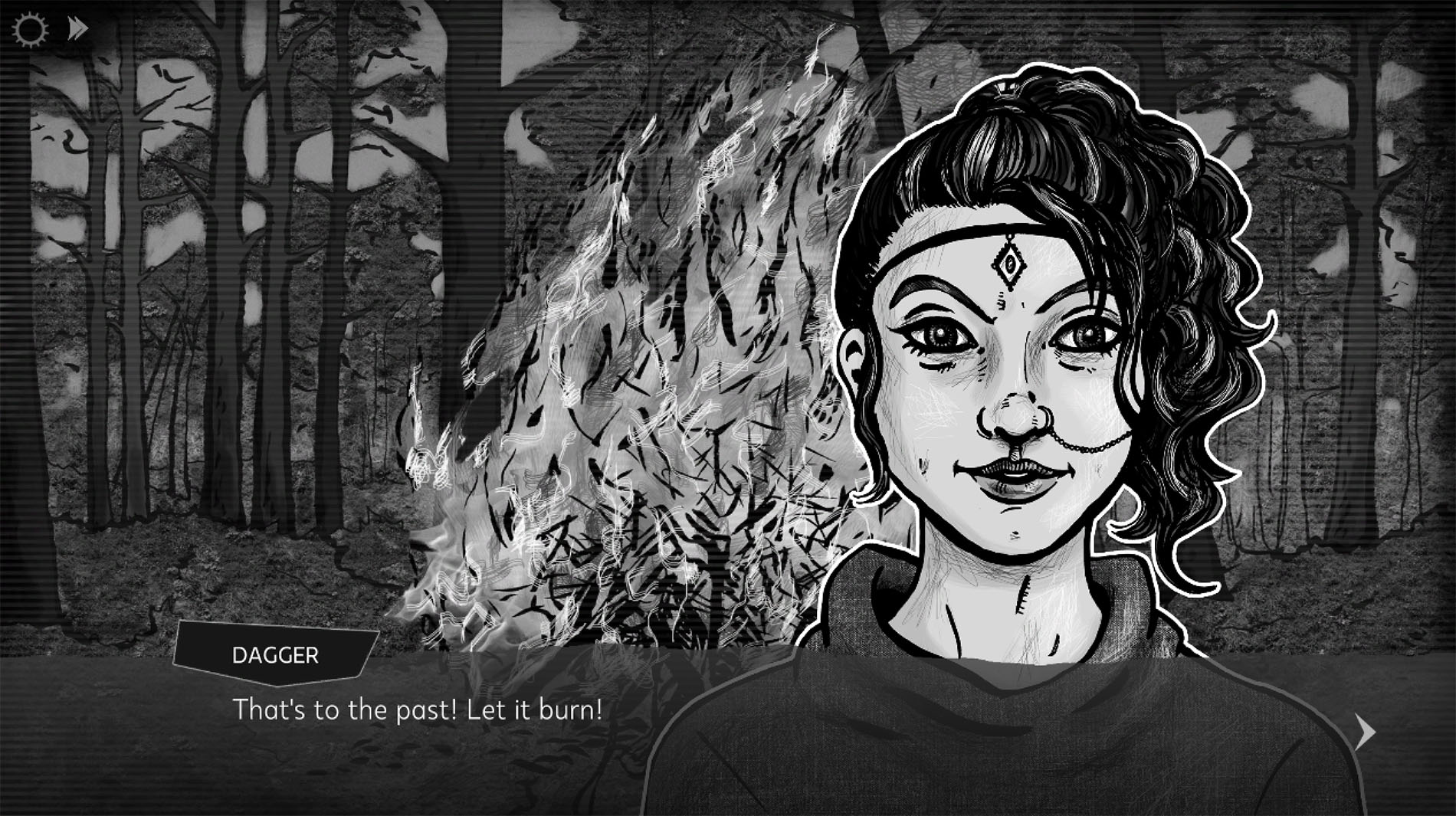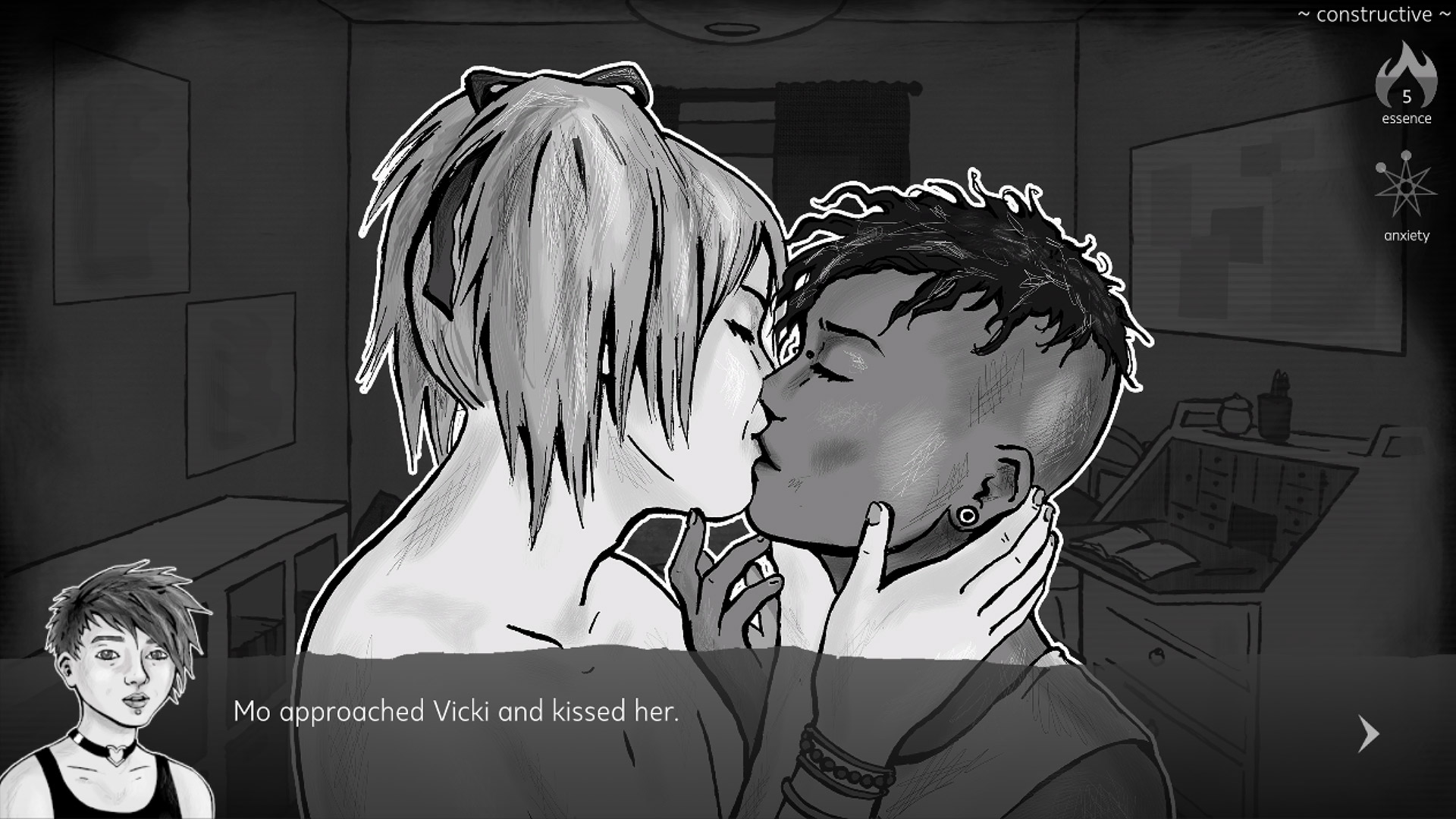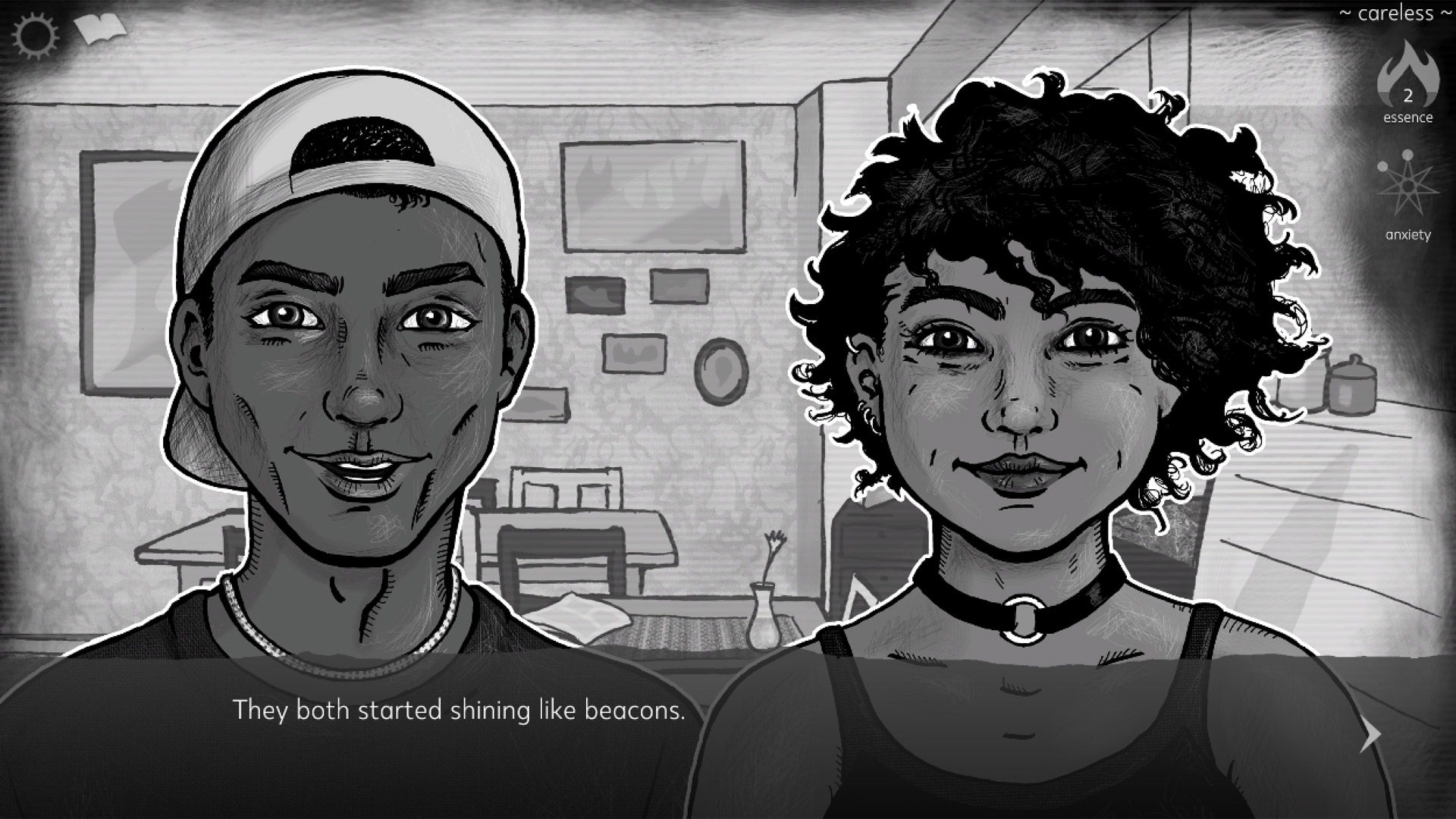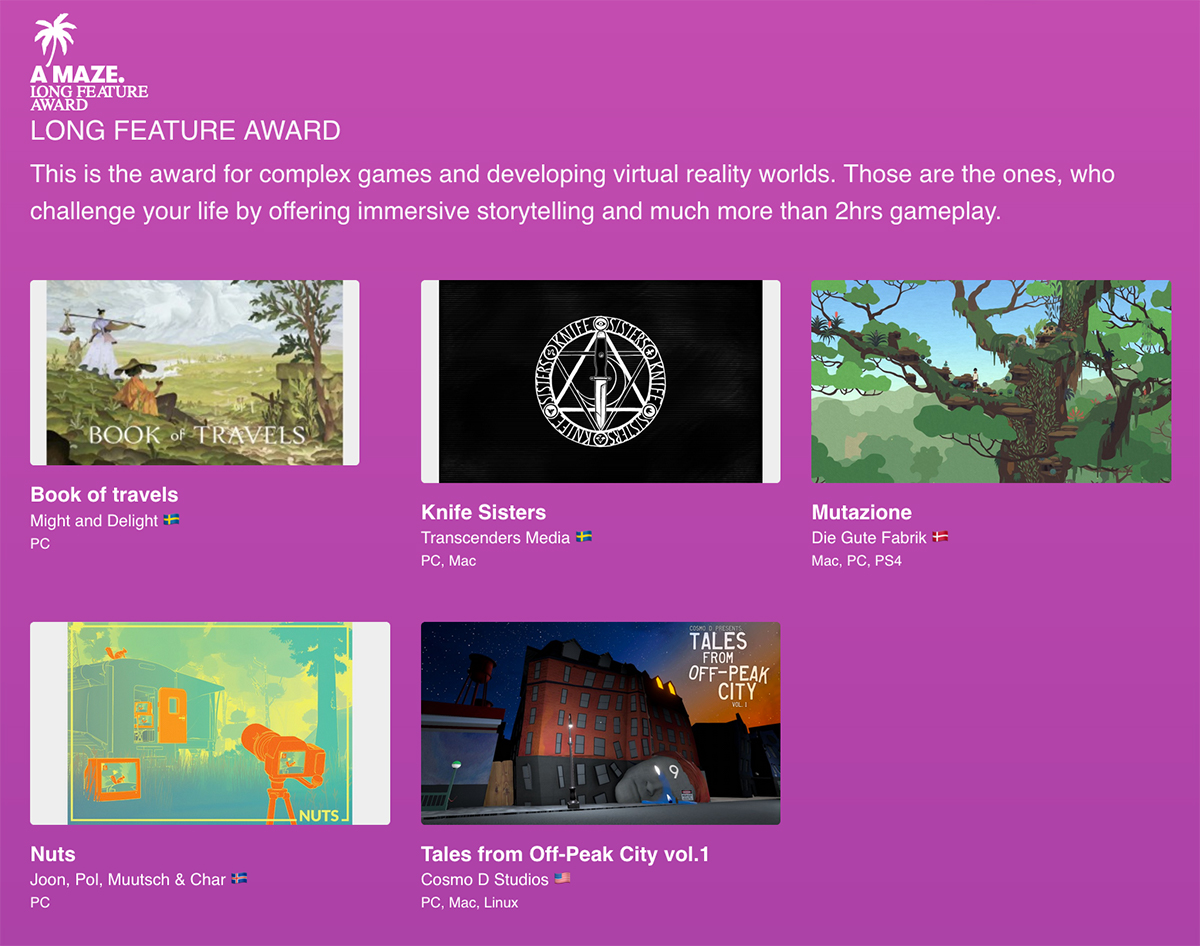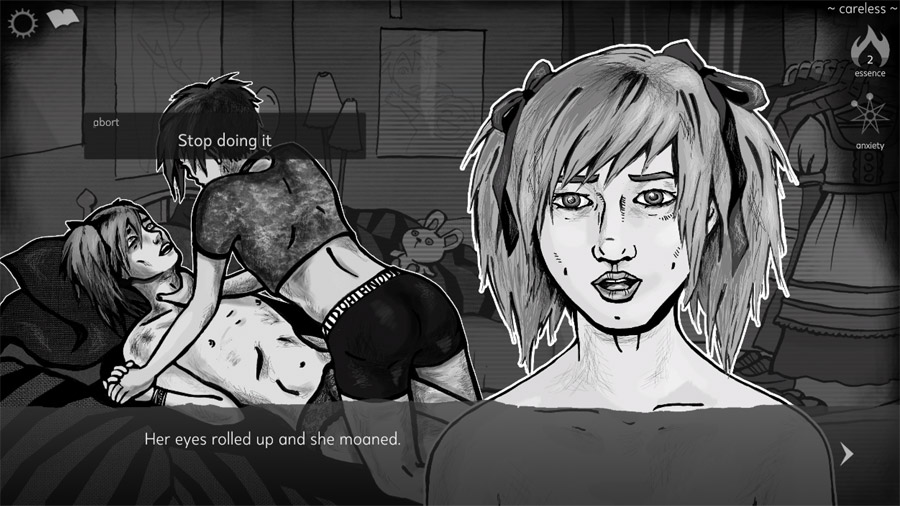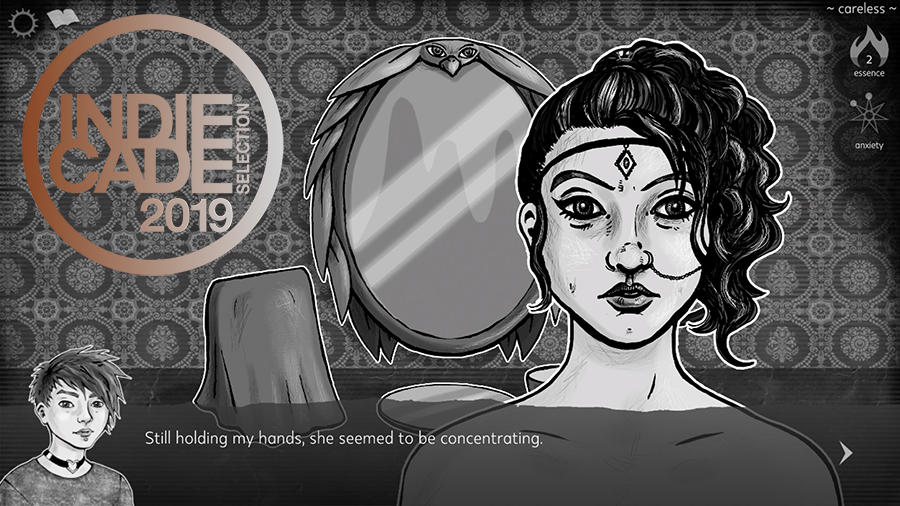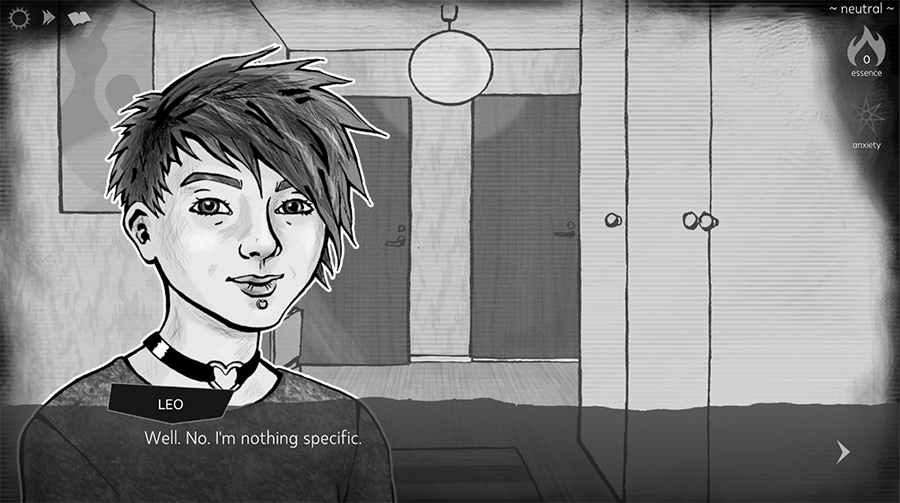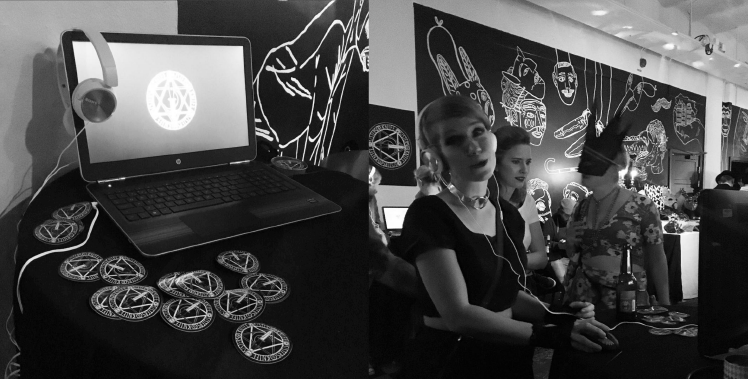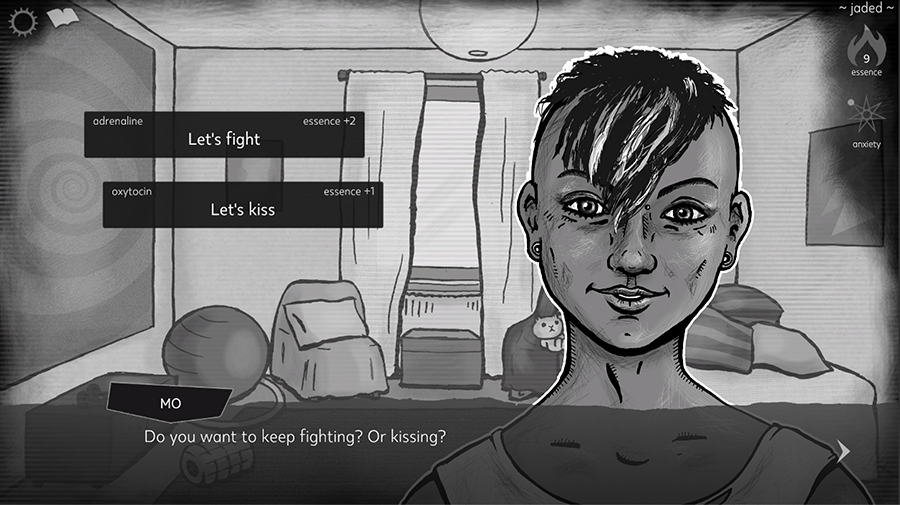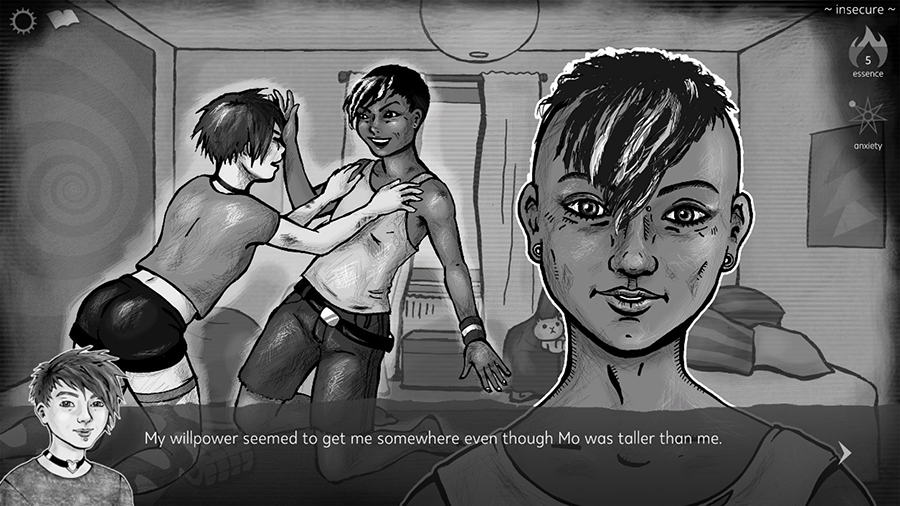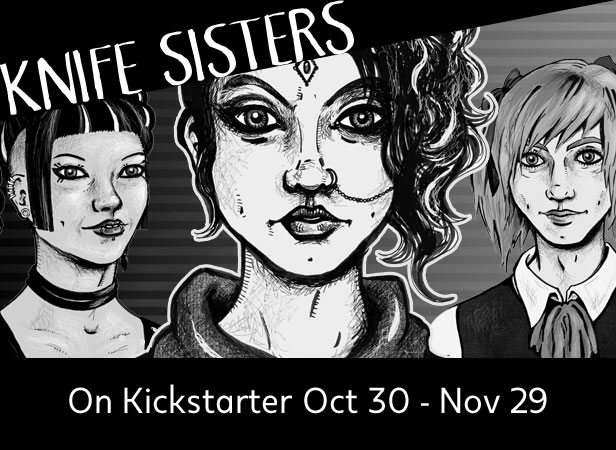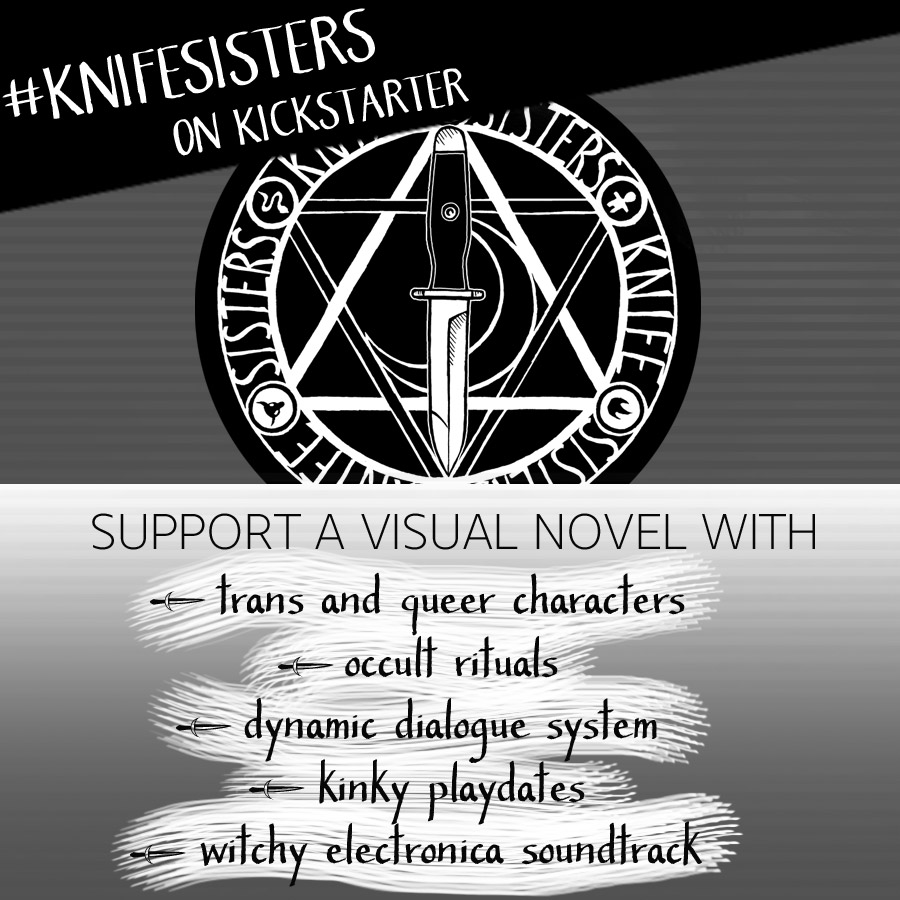Drawings and preparations – April Update
28 characters During April, we’ve completed the line art for every character in the game. If someone would have told me that this game would include 28 characters, I probably wouldn’t have believed it. Knife Sisters has 12. It says something about the scope of Truer than You, which is large by d
Knife Sisters turns five
On this magical date – 2024.04.24 – Knife Sisters turns five years old. To celebrate, the game is free for 24 hours. Get it on itch-io! It both feels much longer and much shorter since this game was released. We started conceptualizing it in late 2015, originally it was intented as a web
I’ll make it up to her!
Games that are about relationships and making tough choices in regards to other characters can evoke quite a lot of emotions. We have already talked a bit about how some players objected to being forced into a relationship with Dagger in Knife Sisters. Another very emotional message we got from a pl
Would you like being forced into a relationship?
When working on relation games, there are many things to take into consideration. I’ve already elaborated a little upon the fact that the choice of characters in relation games is very important, and will affect the players a lot. When working on those kinds of games I have asked myself question
Systems for Emotions – Knife Sisters
In this blog post, I’ll go into Knife Sisters as an example on how a game’s system is created to convey a story, and how the characters are chosen to play a part in that story. (Be aware, there will be spoilers!) When we started working on Knife Sisters, I mainly only knew that the […]
Systems for Emotions – Exploring Relation Games
The games we’re making are relation games: games centered around existential questions and ways to relate to others. We also have a large focus on LGBTQ+ issues and characters. In 2019, we released a game called Knife Sisters, and this blog post, as well as a few upcoming ones, will be centered ar
Knife Sisters got the Long Feature Award!
Tonight at the A MAZE. Awards we won the Long Feature Award for Knife Sisters! We are honored and humbled! 😀 THE LONG FEATUREThis is the award for complex games and developing virtual reality worlds. Those are the ones, who challenge your life by offering immersive storytelling and much more than
Bridging the Gap – Steam and 18+ Content
This is a post in the series “When your Wholesome, Queer Game is Seen as Very Controversial” in which I’m circling around questions such as: How are we supposed to discuss topics like consent and sexuality with young people, if those topics are banned from almost every platform and hidden behi
Knife Sisters is selected for the IndieCade Showcase at E3
Knife Sisters has been selected for the IndieCade Showcase at one of the world’s largest game exhibitions, E3 Expo in Los Angeles, June 11-13. We are super happy and proud to be able to show a game that expands the limits for which stories can be told through games, and who gets to be represented
The reception of Knife Sisters
Knife Sisters has been out for a little more than one month. The reception has been very positive, and we’ve gotten a lot of feedback from the ones we aimed to reach. Here are some impressions: *inhales* If you want to explore queer relationships, empathic BDSM scenarios and wonderfully writte
Showing Knife Sisters at Creative Coast and Nordic Game Conference
Knife Sisters will be shown at Creative Coast Festival (20th of May) in Karlshamn and Nordic Game Conference (22-24th of May) in Malmö. Come by if you want to try the game or have a chat with the developers! 🖤
When Your Wholesome, Queer Game is Seen as Very Controversial – a Blog Series
On the 24th of April we released our dark, emotional, and erotic visual novel Knife Sisters on Steam and Itch.io. In a series of posts, I will look into what happens when you approach the commercial markets with a game that explicitly aims to explore sex, power and consent. Knife Sisters is set in a
Welcome to the release party for Knife Sisters!
Knife Sisters was released on the 24th of April on Steam and Itch.io, and now we’re celebrating that the game has reached players all over the world – in countries where being queer is not as accepted as in Sweden. Join us at DevHub, Torggatan 2 in Malmö, the 31st of May from 18.30. We’ll
For all the lonely souls – I give you Knife Sisters!
Today is a big day: Knife Sisters hits Steam and Itch.io. This game means a lot to me, since I see it as the essence of what I’ve been doing artistically since I was a teenager. I’ve been working in the games industry since 2005, and my aim has always been to explore what games […]
Knife Sisters will be released April 24!
Our dark, explorative and erotic visual novel Knife Sisters will be released the 24th of April on Steam and Itch.io. We are so looking forward to share this interactive love story with you all! 💖
5 tips for doing a Kickstarter campaign
In november 2018 I did a Kickstarter campaign for the visual novel I’m working on, Knife Sisters. This was in part an impulse move, which I will get back to, and it was instigated by meeting a representative from Kickstarter at IndieCade in L.A. in October, who told me he thought the project c
⛓The Kickstarter is live! ⛓
The Kickstarter campaign for Knife Sisters is live!!! Check it out to pre-order the game at a lower price, get unique merch and more! 💥
Knife Sisters
Transcenders Media is currently developing the story based game Knife Sisters, a visual novel about love, peer pressure, occultism and bdsm. Follow on instagram to get regular updates – or sign up to our newsletter. Save Save


